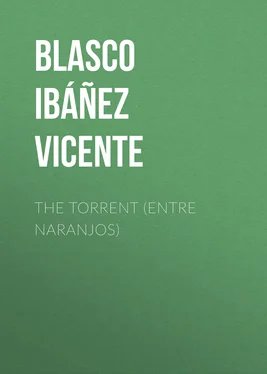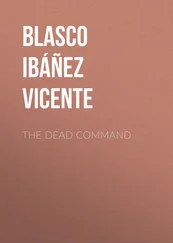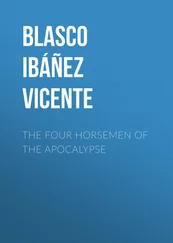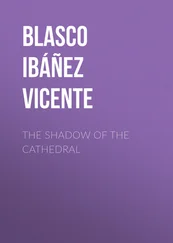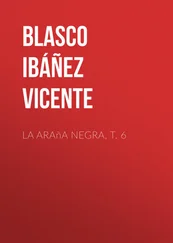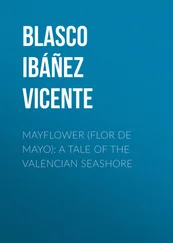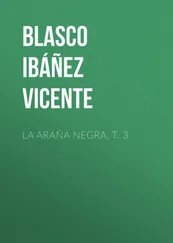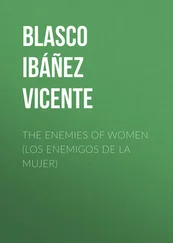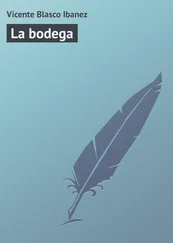Vicente Blasco Ibáñez - The Torrent (Entre Naranjos)
Здесь есть возможность читать онлайн «Vicente Blasco Ibáñez - The Torrent (Entre Naranjos)» — ознакомительный отрывок электронной книги совершенно бесплатно, а после прочтения отрывка купить полную версию. В некоторых случаях можно слушать аудио, скачать через торрент в формате fb2 и присутствует краткое содержание. Жанр: foreign_prose, foreign_antique, на английском языке. Описание произведения, (предисловие) а так же отзывы посетителей доступны на портале библиотеки ЛибКат.
- Название:The Torrent (Entre Naranjos)
- Автор:
- Жанр:
- Год:неизвестен
- ISBN:нет данных
- Рейтинг книги:4 / 5. Голосов: 1
-
Избранное:Добавить в избранное
- Отзывы:
-
Ваша оценка:
- 80
- 1
- 2
- 3
- 4
- 5
The Torrent (Entre Naranjos): краткое содержание, описание и аннотация
Предлагаем к чтению аннотацию, описание, краткое содержание или предисловие (зависит от того, что написал сам автор книги «The Torrent (Entre Naranjos)»). Если вы не нашли необходимую информацию о книге — напишите в комментариях, мы постараемся отыскать её.
The Torrent (Entre Naranjos) — читать онлайн ознакомительный отрывок
Ниже представлен текст книги, разбитый по страницам. Система сохранения места последней прочитанной страницы, позволяет с удобством читать онлайн бесплатно книгу «The Torrent (Entre Naranjos)», без необходимости каждый раз заново искать на чём Вы остановились. Поставьте закладку, и сможете в любой момент перейти на страницу, на которой закончили чтение.
Интервал:
Закладка:
The uncouth, sunburned orchard-girls inspired him with revulsion as if they had been women of another race, creatures of an inferior genus. The young ladies of the city seemed to him peasants in disguise, with the narrow, selfish, stingy instincts of their parents. They knew the exact market price of oranges and just how much land was owned by each aspirant to their hand; and they adjusted their love to the wealth of the pretender, believing it the test of quality to appear implacable toward everything not fashioned to the mould of their petty life of prejudice and tradition.
For that reason he was deeply bored by his colorless, humdrum existence, so far removed from that other purely imaginative life which rose from the pages of his books and enveloped him with an exotic, exciting perfume.
Some day he would be free, and take flight on his own wings; and that day of liberation would come when he got to be deputy. He waited for his coming of age much as an heir-apparent waits for the moment of his coronation.
From early boyhood he had been taught to look forward to the great event which would cut his life in two, opening out new pathways for a "forward march" to fame and fortune.
"When my little boy gets to be deputy," his mother would say in her rare moments of affectionate expansiveness, "the girls will fight for him because he is so handsome! And he'll marry a millionairess!"
Meanwhile, in long years of impatient anticipation, his life went on, with no special circumstance to break its dull monotony—the life of an aspirant certain of his lot, "killing time" till the call should come to enter on his heritage. He was like those noble youngsters of bygone centuries who, graced in their cradles by the rank of colonel from the monarch, played around with hoop and top till they were old enough to join their regiments. He had been born a deputy, and a deputy he was sure to be: for the moment, he was waiting for his cue in the wings of the theatre of life.
His trip to Italy on a pilgrimage to see the Pope was the one event that had disturbed the dreary course of his existence. But in that country of marvels, with a pious canon for a guide, he visited churches rather than museums. Of theatres he saw only two—larks permitted by his tutor, whose austerity was somewhat mollified in those changing scenes. Indifferently they passed the famous artistic works of the Italian churches, but paused always to venerate some relic with miracles as famous as absurd. Even so, Rafael managed to catch a confused and passing glimpse of a world different from the one in which he was predestined to pass his life. From a distance he sensed something of the love of pleasure and romance he had drunk in like an intoxicating wine from his reading. In Milan he admired a gilded, adventurous bohemia of opera; in Rome, the splendor of a refined, artistic aristocracy in perpetual rivalry with that of Paris and London; and in Florence, an English nobility that had come in quest of sunlight and a chance to air its straw hats, show off the fair hair of its ladies, and chatter its own language in gardens where once upon a time the somber Dante dreamed and Boccaccio told his merry tales to drive fear of plague away.
That journey, of impressions as rapid and as fleeting as a reel of moving-pictures, leaving in Rafael's mind a maze of names, buildings, paintings and cities, served to give greater breadth to his thinking, as well as added stimulus to his imagination. Wider still became the gulf that separated him from the people and ideas he met in his common everyday life. He felt a longing for the extraordinary, for the original, for the adventuresomeness of artistic youth; and political master of a county, heir of a feudal dominion virtually, he nevertheless would read the name of any writer or painter whatsoever with the superstitious respect of a rustic churl. "A wretched, ruined lot who haven't even a bed to die on," his mother viewed such people; but Rafael nourished a secret envy for all who lived in that ideal world, which he was certain must be filled with pleasures and exciting things he had scarcely dared to dream of. What would he not give to be a bohemian like the personages he met in the books of Murger, member of a merry band of "intellectuals," leading a life of joy and proud devotion to higher things in a bourgeois age that knew only thirst for money and prejudice of class! Talent for saying pretty things, for writing winged verses that soared like larks to heaven! A garret underneath the roof, off there in Paris, in the Latin Quarter! A Mimí poor but spiritual, who would love him, and—between one kiss and another—be able to discuss—not the price of oranges, like the girls who followed him with tender eyes at home—but serious "elevated" things! In exchange for all that he would gladly have given his future deputyship and all the orchards he had inherited, which, though encumbered by mortgages not to mention moral debts left by the rascality of his father and grandfather—still would bring him a tidy annuity for realizing his bohemian dreams.
Such preoccupations made life as a party leader, tied down to the petty interests of a constituency, quite unthinkable! At the risk of angering his mother, he fled the Club, to court the solitude of the hills and fields. There his imagination could range in greater freedom, peopling the roads, the meadows, the orange groves with creatures of his fancy, often conversing aloud with the heroines of some "grand passion," carried on along the lines laid down by the latest novel he had read.
One afternoon toward the close of summer Rafael climbed the little mountain of San Salvador, which lies close to the city. From the eminence he was fond of looking out over the vast domains of his family. For all the inhabitants of that fertile plain were—as don Andrés said whenever he wished to emphasize the party's greatness—like so many cattle branded with the name of Brull.
As he went up the winding, stony trail, Rafael thought of the mountains of Assisi, which he had visited with his friend the canon, a great admirer of the Saint of Umbria. It was a landscape that suggested asceticism. Crags of bluish or reddish rock lined the roadway on either side, with pines and cypresses rising from the hollows, and extending black, winding, snaky roots out over the fallow soil. At intervals, white shrines with tiny roofs harbored mosaics of glazed tiles depicting the Stations on the Via Dolorosa . The pointed green caps of the cypresses, as they waved, seemed bent on frightening away the white butterflies that were fluttering about over the rosemary and the nettles. The parasol-pines projected patches of shade across the burning road, where the sun-baked earth crackled and crumbled to dead dust under every footstep.
Reaching the little square in front of the Hermitage, he rested from the ascent, stretching out full length on the crescent of rubblework that formed a bench near the sanctuary. There silence reigned, the silence of high hill-tops. From below, the noises of the restless life and labor of the plain came weakened, softened, by the wind, like the murmuring of waves breaking on a distant shore. Among the prickly-pears that grew in close thicket behind the bench, insects were buzzing about, shining in the sun like buds of gold. Some hens, belonging to the Hermitage, were pecking away in one corner of the square, clucking, and dusting their feathers in the gravel.
Rafael surrendered to the charm of the exquisite scene. With reason had it been called "Paradise" by its ancient owners, Moors from the magic gardens of Bagdad, accustomed to the splendors of The Thousand and One Nights , but who went into ecstacies nevertheless on beholding for the first time the wondrous ribera of Valencia!
Throughout the great valley, orange groves, extending like shimmering waves of velvet; hedges and enclosures of lighter green, cutting the crimson earth into geometric figures; clumps of palms spurting like jets of verdure upward toward the sky, and falling off again in languorous swoons; villas blue and rose-colored, nestling in flowering gardens; white farmhouses half concealed behind green swirls of forest; spindling smokestacks of irrigation engines, with yellow sooty tops; Alcira, its houses clustered on the island and overflowing to the opposite bank, all of whitish, bony hue, pock-marked with tiny windows; beyond, Carcagente, the rival city, girdled in its belt of leafy orchards; off toward the sea, sharp, angular mountains, with outlines that from afar suggested the fantastic castles imagined by Doré; and inland, the towns of the upper ribera floating in an emerald lake of orchard, the distant mountains taking on a violet hue from the setting sun that was creeping like a bristly porcupine of gold into the hot vapors of the horizon.
Читать дальшеИнтервал:
Закладка:
Похожие книги на «The Torrent (Entre Naranjos)»
Представляем Вашему вниманию похожие книги на «The Torrent (Entre Naranjos)» списком для выбора. Мы отобрали схожую по названию и смыслу литературу в надежде предоставить читателям больше вариантов отыскать новые, интересные, ещё непрочитанные произведения.
Обсуждение, отзывы о книге «The Torrent (Entre Naranjos)» и просто собственные мнения читателей. Оставьте ваши комментарии, напишите, что Вы думаете о произведении, его смысле или главных героях. Укажите что конкретно понравилось, а что нет, и почему Вы так считаете.
